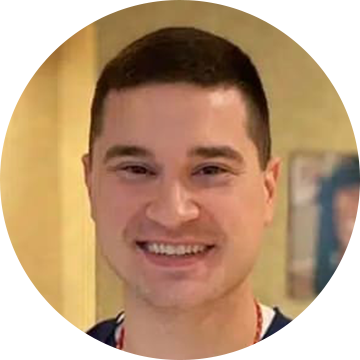Jaw pain is one of the most common and noticeable signs of temporomandibular joint disorder (TMD). For many patients, it starts as a dull ache but can progress into sharp discomfort that makes simple tasks—like eating, speaking, or even yawning—challenging. At our office, we provide comprehensive dental care in Wilmington, Delaware that goes beyond routine checkups to uncover the root causes of pain. With advanced TMJ treatment options to relieve pain, restore function, and improve quality of life, we help patients find lasting comfort and renewed confidence in their daily lives.
Understanding TMJ and TMD
The temporomandibular joint (TMJ) is the hinge that connects your jaw to your skull, making it possible to chew, speak, and yawn with ease. When this joint or the surrounding muscles become strained or misaligned, the condition is called temporomandibular joint disorder (TMD). TMJ refers to the joint itself, while TMD describes the problems and symptoms that arise when the joint isn’t working properly.
TMD can develop for many reasons, including teeth grinding, jaw clenching, injury, arthritis, or an imbalanced bite. Common issues include jaw pain, headaches, ear ringing, neck discomfort, and even limited jaw movement. By understanding the distinction between TMJ and TMD, patients can better recognize when everyday discomfort may be linked to this condition—and when it’s time to seek professional care.
Recognizing Jaw Pain as a Symptom
Jaw pain is one of the most common signs of temporomandibular joint disorder (TMD) because your jaw is always at work. Whether you’re eating, talking, or even yawning, the joint is constantly moving. When it isn’t working as it should, the muscles around it can become sore and overworked, leading to tenderness or sharp discomfort.
Everyday habits like clenching your teeth, grinding at night, or living with an uneven bite can make the jaw work even harder. This extra strain is why many people notice jaw pain first—long before other symptoms of TMD appear.
If you’re dealing with daily jaw soreness, you don’t have to live with it. With caring dental treatment in Wilmington, Delaware and modern TMJ therapies that bring lasting comfort, you can find relief and get back to enjoying life without constant pain.
FAQs About Other Common Signs of TMD
How Our Delaware Dentists Treat TMD
When you visit a dentist in Delaware for TMD, the goal is to not only ease discomfort but also find out what’s causing it. Using advanced technology and personalized care, treatment can bring real relief and protect your long-term oral health.
Advanced Testing and Relaxation Therapies
- Muscle Scans (EMG): Small sensors measure how your jaw muscles are working so the dentist can spot areas of tension.
- Gentle Muscle Relaxation (TENS): A safe, low-level electrical pulse helps relax tight jaw muscles, improving comfort and reducing pain.
- 3D Imaging: Special scans give a detailed view of your teeth and jaw so your dentist can plan the most accurate treatment.
Custom Appliances and Devices
- Orthotic Devices: Custom-made mouthpieces guide your jaw into a healthier position, easing strain and helping it work properly.
- Oral Appliance: This comfortable device repositions your jaw to improve function and relieve symptoms.
Restorative Dental Treatments
- Dental Implants: Replacing missing teeth restores natural chewing and helps keep your bite balanced, easing stress on the jaw joint.
- Crowns and Bridges: Repairing worn or damaged teeth helps your bite fit together properly, reducing jaw pressure.
- Full-Mouth Reconstruction: For more complex cases, a customized combination of treatments can restore balance, function, and comfort.
By blending advanced technology with proven dental treatments, your dentist can target both the causes and the symptoms of TMD — giving you lasting comfort and better function.
Lasting Relief From Jaw Pain Starts Here
You don’t have to let jaw pain or the other symptoms of TMD control your daily life. Our dentists in Wilmington, Delaware are here to listen, evaluate, and provide a personalized plan that addresses both the cause of your discomfort and your long-term oral health. With today’s advanced therapies and restorative treatments, lasting comfort is within reach. Schedule a consultation today by calling (302) 994-0979 and take the first step toward living without constant pain.





